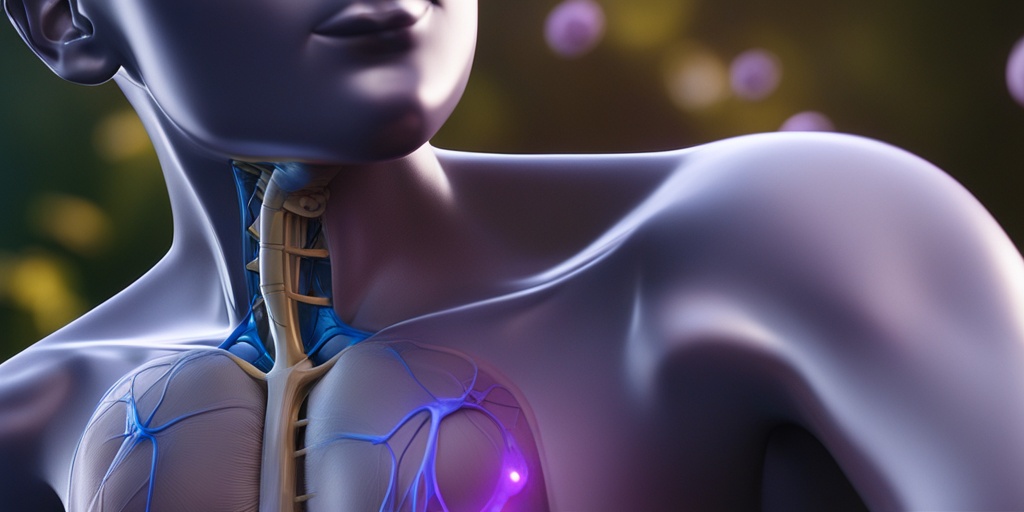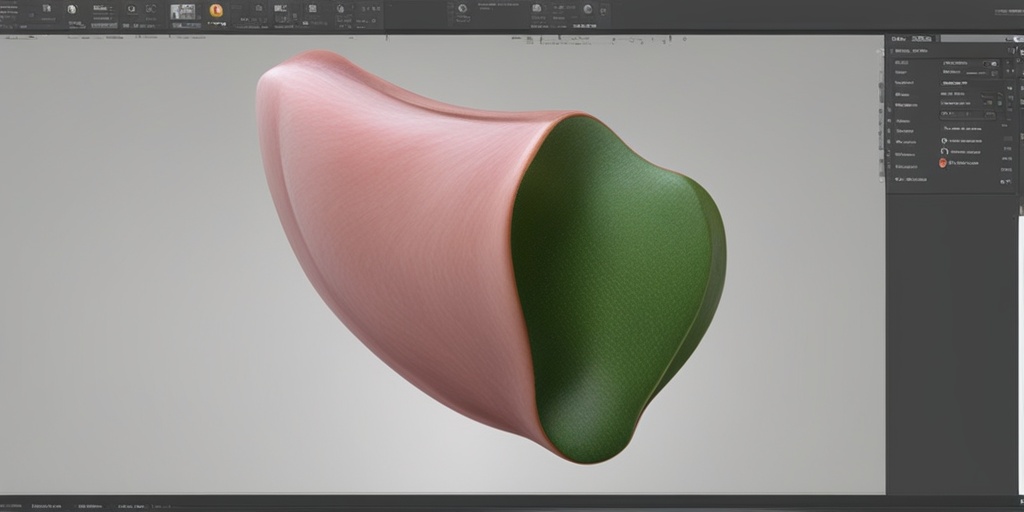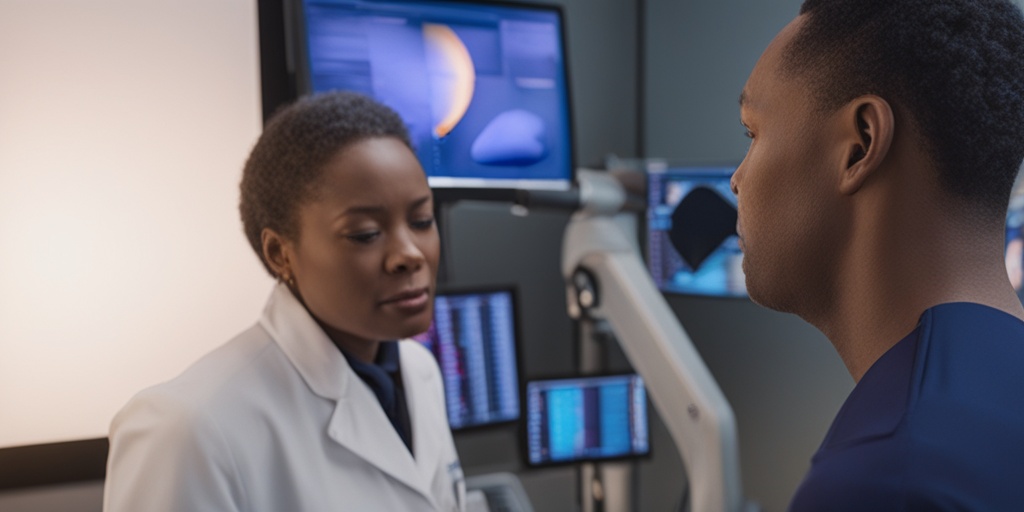What Are Lymph Nodes?
Lymph nodes are small, bean-shaped organs that play a vital role in our immune system. They are part of the lymphatic system, which helps to defend our body against infection and disease. There are hundreds of lymph nodes located throughout our body, with clusters found in the neck, armpits, groin, and behind the ears.
Lymph nodes act as filters, trapping foreign substances like bacteria, viruses, and other toxins that enter our body. They contain immune cells called lymphocytes, which help to fight off infections and diseases. When lymph nodes detect the presence of foreign substances, they can become swollen as they work to remove the infection from our body.
Functions of Lymph Nodes
Lymph nodes perform several important functions, including:
- Filtration: Lymph nodes filter the lymph fluid, removing waste products, bacteria, and other foreign substances.
- Activation of immune response: Lymph nodes activate the immune response by recognizing and responding to the presence of foreign substances.
- Production of immune cells: Lymph nodes produce immune cells called lymphocytes, which help to fight off infections and diseases.
What Causes Swollen Lymph Nodes?
Swollen lymph nodes, also known as lymphadenopathy, occur when the lymph nodes become enlarged due to an infection, inflammation, or other conditions. There are many possible causes of swollen lymph nodes, including:
Infections
Infections are the most common cause of swollen lymph nodes. These can include:
- Bacterial infections: Such as strep throat, tuberculosis, and cat-scratch disease.
- Viral infections: Such as the common cold, flu, and mononucleosis.
- Fungal infections: Such as histoplasmosis and coccidioidomycosis.
Other Causes
In addition to infections, swollen lymph nodes can be caused by:
- Cancer: Such as lymphoma, leukemia, and breast cancer.
- Autoimmune disorders: Such as rheumatoid arthritis and lupus.
- Inflammatory conditions: Such as sarcoidosis and Kawasaki disease.
- Medications: Certain medications, such as phenytoin and sulfonamides, can cause swollen lymph nodes as a side effect.
If you’re experiencing swollen lymph nodes, it’s essential to consult with a healthcare professional to determine the underlying cause and appropriate treatment. In the meantime, you can use online resources like Yesil Health AI (yesilhealth.com) to find evidence-based health answers and learn more about swollen lymph nodes. 🤕
Stay tuned for the next part of this article, where we’ll explore the symptoms, diagnosis, and treatment of swollen lymph nodes! 👉

Swollen Lymph Nodes Symptoms
Have you ever noticed a lump or swelling in your neck, armpit, or groin area? 🤕 It could be a sign of swollen lymph nodes! Lymph nodes are an essential part of our immune system, and when they become inflamed or infected, they can cause a range of uncomfortable symptoms. In this article, we’ll explore the common symptoms of swollen lymph nodes, what causes them, and how to treat them.
What Do Swollen Lymph Nodes Feel Like?
Swollen lymph nodes can feel like small, pea-sized lumps or bumps under the skin. They may be tender to the touch and can be painful, especially when you move your head, neck, or arm. In some cases, swollen lymph nodes can become quite large and feel like a hard, rubbery lump.
Common Symptoms of Swollen Lymph Nodes
Some common symptoms of swollen lymph nodes include:
- Pain or tenderness in the affected area
- Swelling or lumps in the neck, armpit, or groin area
- Fever, which can indicate an underlying infection
- Fatigue, which can be a sign of an underlying illness
- Loss of appetite, which can lead to weight loss
- Sore throat or difficulty swallowing
- Ear pain or difficulty hearing
Swollen Lymph Nodes in Neck
Swollen lymph nodes in the neck are a common occurrence, especially in people who have recently had a cold, flu, or other viral infection. 🤧 The neck is a common location for lymph nodes, and when they become inflamed, they can cause a range of symptoms.
Causes of Swollen Lymph Nodes in Neck
Some common causes of swollen lymph nodes in the neck include:
- Viral infections, such as the common cold or flu
- Bacterial infections, such as strep throat or tonsillitis
- Mononucleosis, also known as mono or glandular fever
- Cancer, such as lymphoma or leukemia
- Other medical conditions, such as rheumatoid arthritis or lupus
In the next section, we’ll explore the causes of swollen lymph nodes in more detail and discuss how to treat them. 💊

Swollen Lymph Nodes in Armpit
Have you ever noticed a lump or swelling in your armpit and wondered what it could be? 🤔 It’s not uncommon for people to experience swollen lymph nodes in this area, and in this section, we’ll explore the possible causes and what you can do about it.
What are lymph nodes?
Before we dive into the specifics of swollen lymph nodes in the armpit, let’s quickly cover what lymph nodes are. Lymph nodes are small, bean-shaped organs that play a crucial role in our immune system. They help filter out toxins, bacteria, and other foreign substances from our bodies, and they can become swollen or enlarged when they’re fighting an infection.
Causes of swollen lymph nodes in the armpit
There are several reasons why you might experience swollen lymph nodes in your armpit. Some common causes include:
- Infections: Bacterial or viral infections, such as the common cold or flu, can cause swollen lymph nodes in the armpit.
- Vaccinations: Receiving vaccinations, such as the flu shot, can cause temporary swelling in the lymph nodes.
- Cancer: In rare cases, swollen lymph nodes in the armpit can be a sign of cancer, such as breast cancer or lymphoma.
- Injury or trauma: A blow to the armpit or surrounding area can cause swelling in the lymph nodes.
Symptoms of swollen lymph nodes in the armpit
If you have swollen lymph nodes in your armpit, you may experience:
- Pain or tenderness: The affected area may be painful or tender to the touch.
- Swelling: You may notice a visible lump or swelling in your armpit.
- Redness or warmth: The skin over the affected area may be red, warm, or inflamed.
Treatment for swollen lymph nodes in the armpit
Treatment for swollen lymph nodes in the armpit will depend on the underlying cause. If you’re experiencing symptoms, it’s essential to see a healthcare professional for a proper diagnosis and treatment plan. In the meantime, you can try:
- Applying heat or cold: Applying a warm compress or an ice pack to the affected area may help reduce swelling and relieve pain.
- Taking over-the-counter pain relievers: Ibuprofen or acetaminophen may help reduce pain and inflammation.
- Practicing good hygiene: Keeping the affected area clean and dry can help prevent infection.
—
Swollen Lymph Nodes in Groin
Swollen lymph nodes in the groin area can be a cause for concern, but in many cases, they’re a normal response to an infection or inflammation. Let’s explore the possible causes and what you can do about it.
Causes of swollen lymph nodes in the groin
Swollen lymph nodes in the groin can be caused by:
- Infections: Bacterial or viral infections, such as a urinary tract infection (UTI) or sexually transmitted infection (STI), can cause swollen lymph nodes in the groin.
- Injury or trauma: A blow to the groin area can cause swelling in the lymph nodes.
- Cancer: In rare cases, swollen lymph nodes in the groin can be a sign of cancer, such as lymphoma or testicular cancer.
- Hormonal changes: Hormonal fluctuations during menstruation or pregnancy can cause swollen lymph nodes in the groin.
Symptoms of swollen lymph nodes in the groin
If you have swollen lymph nodes in your groin, you may experience:
- Pain or tenderness: The affected area may be painful or tender to the touch.
- Swelling: You may notice a visible lump or swelling in your groin.
- Redness or warmth: The skin over the affected area may be red, warm, or inflamed.
Treatment for swollen lymph nodes in the groin
Treatment for swollen lymph nodes in the groin will depend on the underlying cause. If you’re experiencing symptoms, it’s essential to see a healthcare professional for a proper diagnosis and treatment plan. In the meantime, you can try:
- Applying heat or cold: Applying a warm compress or an ice pack to the affected area may help reduce swelling and relieve pain.
- Taking over-the-counter pain relievers: Ibuprofen or acetaminophen may help reduce pain and inflammation.
- Practicing good hygiene: Keeping the affected area clean and dry can help prevent infection.

Diagnosing Swollen Lymph Nodes
Swollen lymph nodes can be a cause for concern, and it’s essential to get an accurate diagnosis to determine the underlying cause. In this section, we’ll explore the steps involved in diagnosing swollen lymph nodes.
Physical Examination
A healthcare professional will typically start by performing a physical examination to check for swollen lymph nodes. They will gently feel the lymph nodes in the neck, armpits, and groin area to check for any enlargement or tenderness. They may also check for other symptoms such as fever, fatigue, or weight loss.
Medical History
Your healthcare provider will also ask you questions about your medical history, including any recent illnesses, infections, or medications you’re taking. This information can help identify potential causes of swollen lymph nodes.
Imaging Tests
In some cases, imaging tests such as ultrasound, CT scan, or MRI may be ordered to visualize the lymph nodes and surrounding tissues. These tests can help identify any abnormalities or inflammation in the lymph nodes.
Lymph Node Biopsy
In some cases, a lymph node biopsy may be necessary to collect a sample of tissue from the swollen lymph node. This sample can be examined under a microscope to check for any abnormal cells or signs of infection.
Lab Tests
Lab tests such as complete blood count (CBC) and blood chemistry tests may be ordered to check for signs of infection or inflammation. These tests can help identify any underlying conditions that may be causing the swollen lymph nodes.
Treatment for Swollen Lymph Nodes
The treatment for swollen lymph nodes depends on the underlying cause. In this section, we’ll explore some common treatment options for swollen lymph nodes.
Home Remedies
In some cases, swollen lymph nodes may resolve on their own without treatment. In the meantime, there are some home remedies that can help alleviate symptoms. These include:
- Applying a warm compress to the affected area to reduce swelling and relieve pain
- Taking over-the-counter pain relievers such as ibuprofen to reduce pain and inflammation
- Getting plenty of rest and staying hydrated to help your body fight off infection
Antibiotics
If the swollen lymph nodes are caused by a bacterial infection, antibiotics may be prescribed to treat the infection. It’s essential to complete the full course of antibiotics as directed by your healthcare provider.
Anti-Inflammatory Medications
In some cases, anti-inflammatory medications such as steroids may be prescribed to reduce swelling and inflammation in the lymph nodes.
Surgical Drainage
In rare cases, surgical drainage may be necessary to drain an abscess or infected lymph node. This is usually done under local anesthesia and can help alleviate symptoms and promote healing.
Remember, it’s essential to consult with a healthcare professional for an accurate diagnosis and appropriate treatment plan for swollen lymph nodes. 🏥

Frequently Asked Questions about Swollen Lymph Nodes
What are Swollen Lymph Nodes?
Swollen lymph nodes, also known as lymphadenopathy, occur when the lymph nodes in the body become enlarged or inflamed. This can be a sign of an underlying infection, inflammation, or other health issue.
What are the Common Causes of Swollen Lymph Nodes?
Swollen lymph nodes can be caused by a variety of factors, including:
- Infections such as the common cold, flu, or sinus infections
- Bacterial infections like strep throat or tuberculosis
- Viral infections like mononucleosis or HIV
- Cancer, such as lymphoma or leukemia
- Autoimmune disorders like rheumatoid arthritis or lupus
- Injury or trauma to the lymph nodes
Where are Swollen Lymph Nodes Typically Located?
Swollen lymph nodes can occur in various parts of the body, including:
- The neck
- The armpits
- The groin area
- Behind the ear
- Under the chin
- In the back of the neck
What are the Symptoms of Swollen Lymph Nodes?
Common symptoms of swollen lymph nodes include:
- Pain or tenderness in the affected area
- Swelling or enlargement of the lymph nodes
- Redness or warmth around the affected area
- Fever
- Fatigue
- Loss of appetite
How are Swollen Lymph Nodes Diagnosed?
A healthcare professional will typically perform a physical examination and take a medical history to diagnose swollen lymph nodes. They may also order imaging tests, such as a CT or MRI scan, or a biopsy to determine the underlying cause of the swelling.
How are Swollen Lymph Nodes Treated?
Treatment for swollen lymph nodes depends on the underlying cause. In some cases, treatment may involve:
- Antibiotics to treat bacterial infections
- Antiviral medications to treat viral infections
- Pain relief medications, such as ibuprofen, to reduce discomfort
- Cancer treatment, such as chemotherapy or radiation therapy, if the swelling is caused by cancer
- Immune system suppressants to treat autoimmune disorders
Can Swollen Lymph Nodes be Prevented?
While it may not be possible to completely prevent swollen lymph nodes, there are steps you can take to reduce your risk:
- Practice good hygiene, such as washing your hands regularly
- Get vaccinated against common infections, such as the flu
- Avoid close contact with people who are sick
- Get regular check-ups with your healthcare provider
When Should I Seek Medical Attention for Swollen Lymph Nodes?
If you experience any of the following, seek medical attention:
- Severe pain or swelling in the affected area
- Fever over 101.5°F (38.6°C)
- Difficulty swallowing or breathing
- Swollen lymph nodes that do not improve with treatment
- Swollen lymph nodes that are accompanied by other symptoms, such as night sweats or weight loss
👍 Remember, if you’re experiencing swollen lymph nodes, it’s always best to consult with a healthcare professional for proper diagnosis and treatment.




